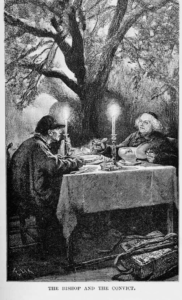When it comes to being labeled “a liberal,” Barack Obama is dismissive. “Oh, he's liberal. He's liberal,” he said recently in describing a characterization of him by Republicans. “Let me tell you something. There's nothing liberal about wanting to reduce money in politics. It's common sense. . . . There's nothing liberal about wanting to make sure that everybody has health care.”
Mr. Obama needs to inoculate himself against the claim that he's a liberal. For the past quarter-century it has been consistently the most effective charge made by Republicans against Democrats. America is a center-right country and in modern times has not elected a thoroughgoing liberal as president (Jimmy Carter and Bill Clinton ran as moderate Democrats). The problem is that, by any reasonable standard, Mr. Obama is an orthodox liberal.
National Journal rated him as the most liberal person in the Senate in 2007, and for good reason. On economic policy, Mr. Obama favors higher income, Social Security and corporate taxes. He supports massive increases in domestic spending and greater government regulation of the economy. He favors a significantly larger role for the federal government in health care. He opposes the North American Free Trade Agreement.
Mr. Obama has criticized the Supreme Court's decision to uphold a partial birth abortion ban, and he wants to repeal the Defense of Marriage Act. He voted against John Roberts and Samuel Alito for the Supreme Court. In Illinois, Mr. Obama supported banning the manufacture, sale and possession of handguns. And he supports granting driver's licenses to illegal immigrants.
On national security matters, Mr. Obama voted to deny legal immunity to telecom companies that have cooperated with the government in warrantless wiretapping of suspected terrorists. He wants to grant habeas corpus rights to detainees held at Guantanamo Bay. He supports a full-scale withdrawal from Iraq. And he says, in his first year in office, he would meet with the leaders of Iran, Syria, Venezuela, Cuba and North Korea without preconditions.
It's no wonder that Mr. Obama has been endorsed by Moveon.org – one of the most radical groups within the liberal universe.
Adding to Mr. Obama's problems is his close association with Rev. Jeremiah Wright Jr., whose anti-American rantings are the kind of thing routinely said by the far left.
For whatever reason, Mr. Obama has failed to do what Mr. Clinton did in 1992 – run as a “new” Democrat who favors some conservative policies (ending welfare as we know it, supporting free trade, criticizing the “butchers of Beijing,” and famously criticizing Sister Souljah).
Since Mr. Obama's record reveals him to be a doctrinaire liberal, he dismisses ideological labels as simplistic, misleading and outmoded. When asked if he's comfortable with the liberal label, he says, “This is what I would call old politics. This is the stuff we're trying to get rid of . . . Those old categories don't work, and they're preventing us from solving problems.”
In fact, “liberal” and “conservative” can be useful (if incomplete) monikers – a shorthand way of describing where an individual stands on issues and, as importantly, their political philosophy. They are an indicator of a person's underlying assumptions, the propositions they embrace or reject. Mr. Obama's effort to present himself as a post-ideological figure is an effort to avoid an important national debate. And John McCain should not let Mr. Obama (assuming he wins the Democratic nomination) get away with it.
But because the political environment and challenges facing America have changed significantly since Ronald Reagan was president, it will not be enough for Mr. McCain to invoke the word “liberal” against Mr. Obama. Mr. McCain needs to present a compelling case on the foundational beliefs that divide liberalism and conservatism – on matters like the size and role of government, competition and accountability in education, health care, and whether higher taxes encourage or retard economic growth. Mr. McCain also needs to force a debate on the proper role of the judiciary, the protection owed to unborn children and the rights owed to unlawful enemy combatants, and whether promoting liberty should be a central aim of American foreign policy in combating militant Islam.
Mr. McCain needs to become an educator-in-chief on matters of political philosophy. He won't be able to fulfill that role nearly as well as Reagan, who was a philosophical conservative in the way that Mr. McCain (and most other Republican politicians) is not. And Mr. McCain himself has, until now, been sui generis on matters of conservatism. His challenge is to make his case well enough to convince Americans not only that Mr. Obama is a liberal, but that having a liberal in the White House would do real damage to our country.
Mr. McCain has overcome harder challenges than this one.
— Mr. Wehner, a former deputy assistant to President George W. Bush, is a senior fellow at the Ethics and Public Policy Center.

